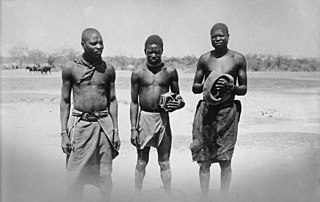Related Research Articles

Pulpit is a raised stand for preachers in a Christian church. The origin of the word is the Latin pulpitum. The traditional pulpit is raised well above the surrounding floor for audibility and visibility, accessed by steps, with sides coming to about waist height. From the late medieval period onwards, pulpits have often had a canopy known as the sounding board or abat-voix above and sometimes also behind the speaker, normally in wood. Though sometimes highly decorated, this is not purely decorative, but can have a useful acoustic effect in projecting the preacher's voice to the congregation below. Most pulpits have one or more book-stands for the preacher to rest his or her bible, notes or texts upon.

Huánuco is a department in central Peru. It is bordered by the La Libertad, San Martín, Loreto and Ucayali regions in the north, the Ucayali Region in the east, the Pasco Region in the south and the Lima and Ancash regions in the west. Its capital is the city Huánuco.

The Aawambo people, also called Aawambo, Ambo, Aawambo or Ovawambo (Kwanyama), are a Southern African tribal ethnic group. They are the largest ethnic group of Namibia, found in its northern regions and more often called Ovambo. They are also found in southern Angolan province of Cunene where the name Ambo is more common. The Ovambo consist of a number of kindred Bantu ethnic tribes who inhabit what was formerly called Owamboland. Accounting for about fifty percent of the Namibian population, the Ovambo are its largest ethnic group. In Angola, they are a minority, accounting for about two percent of the total Angolan population.

Ambo is a spa town and separate woreda in central Ethiopia. Located in the West Shewa Zone of the Oromia Region, west of Addis Ababa, this town has a latitude and longitude of 8°59′N37°51′E and an elevation of 2101 meters.

Ambos Camarines, commonly known as Camarines, was a historical province in the Philippines found on the northern end of the Bicol Peninsula. It now exists as two separate provinces: Camarines Norte and Camarines Sur.
The Legislative Districts of Ambos Camarines were the representations of the historical province of Ambos Camarines in the various national legislatures of the Philippines until 1919. The undivided province's representation encompassed what are now the provinces of Camarines Norte and Camarines Sur, and the independent component city of Naga.
AMBO pipeline was a planned oil pipeline from the Bulgarian Black Sea port of Burgas via the Republic of Macedonia to the Albanian Adriatic port of Vlorë.
The Legislative districts of Camarines Norte are the representation of the province of Camarines Norte in the Philippine House of Representatives. Camarines Norte was represented as part of the first and second districts of Ambos Camarines prior to being granted its own representation, after the division of Ambos Camarines in 1919 into Norte and Sur. From 1978 to 1984, it was part of the representation of Region V.
Ambo Zuria is one of the woredas in the Oromia Region of Ethiopia. Part of the West Shewa Zone, it is bordered on the southwest by Tikur, on the west by Cheliya, on the north by Ginde Beret, on the northeast by Jeldu, on the east by Dendi, and on the southeast by the Southwest Shewa Zone. The administrative center of this woreda is Ambo; other towns include Gorosile and Meti. Ambo Zuria and Toke Kutaye woredas and Ambo town were part of former Ambo woreda.

The Ovambo language, Oshiwambo, is a dialect cluster spoken by the Ovambo people in Angola and northern Namibia, of which the written standards are Kwanyama and Ndonga.
Ambo may refer to:

The Ambon or Ambo is a projection coming out from the soleas in an Eastern Orthodox, Oriental Orthodox and Eastern Catholic church. The ambon stands directly in front of the Holy Doors. It may be either rounded or square and has one, two, or three steps leading up to it.

The Ambo Province is one of eleven provinces of the Huánuco Region in Peru. The capital of this province is the city of Huacrachuco.
Ambo District is one of eight districts of the Ambo Province in Peru.

The Hotel Ambos Mundos is a hotel of square form with five floors, built with an eclectic set of characteristics of 20th-century style architecture. It was built in 1924 on a site that previously had been occupied by an old family house on the corner of Calle Obispo and Mercaderes in La Habana Vieja, Cuba. It is a frequent tourist destination because it was home to the popular writer Ernest Hemingway for seven years in the 1930s.
Lala-Bisa is a Bantu language of Zambia that is closely related to Bemba.

Ambo Mineral Water is a brand of naturally-carbonated bottled mineral water, sourced from the springs in Ambo Senkele, near the town of Ambo in central Ethiopia. It is a popular drink in Ethiopia, and has been described as the "oldest modern mineral water" and Ethiopia's "oldest mineral water bottler." It has been bottled since 1930. The company is owned by SABMiller PLC and SouthWest Development, and used to be a state-owned company.
Events from the year 1918 in Mexico.
Awkimarka is an archaeological site in Peru. It is situated in the Huánuco Region, Ambo Province, Tomay Kichwa District.

Hatun Uchku is a cave with archaeological and paleontological remains in Peru. It was declared a National Cultural Heritage by Resolución Directoral No. 441/INC on May 23, 2002. Hatun Uchku is situated in the Huánuco Region, Ambo Province, Ambo District, about 500 m south of the main square of Ambo, at a height of 2,206 metres (7,238 ft).
References
- ↑ Ambo at Ethnologue (18th ed., 2015)
- ↑ Hammarström, Harald; Forkel, Robert; Haspelmath, Martin, eds. (2017). "Ambo". Glottolog 3.0 . Jena, Germany: Max Planck Institute for the Science of Human History.
| This article about Southern Bantoid languages is a stub. You can help Wikipedia by expanding it. |